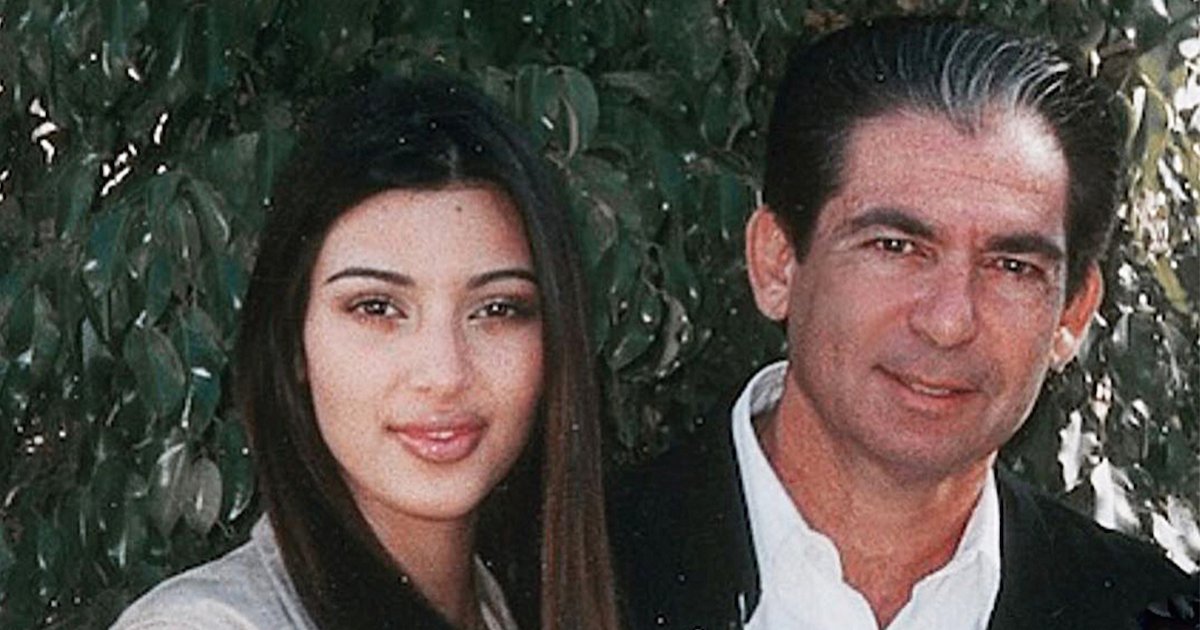A Sentimental Gift
- For Kim Kardashian’s birthday, her husband Kanye West created a hologram of her late father who passed away from esophageal cancer.
- The five-year survival rate for esophageal cancer is less than 20%, but immunotherapy has recently shown enormous promise in helping patients.
- Immunotherapy drug Opdivo was approved in June for metastatic and recurrent esophageal cancer.
Kardashian shared a video of West’s gift, which shows the hologram of Robert, who famously defended OJ Simpson in the 90’s, talking about how happy he is that she’s built such a beautiful family and is pursuing law. Robert passed away in 2003 after battling esophageal cancer, so it’s no wonder why this gift is so special. In the hologram, Robert talks about how special his baby girl is, and even sings along to a song they listened to on car rides to school. At the end, Robert says he’ll always be there for Kim through her prayers. “Know that I’m very proud of you and I’m always with you. I have built a firewall around our family,” he says at the end. “Don’t forget to say your prayers.”
Read MoreThe hologram certainly sparked a reaction on social media to say the least. While some people were calling this gift ‘creepy,’ a select few others voiced how kind and sentimental this gift to Kardashian is. A number of people coming to the defense of Kardashian seem to be ones who have lost fathers themselves, so they certainly know how much it must have meant for her to see him again.
I would have cried like a baby. I just want to call my dad right now and wish i could go see him and hug him so tight. God I wish i could travel. Great gift. And people on here should be more sensitive to the fact that he is no longer here. Thanks for sharing it Kim.
— Conchita Leeflang (@conchitaleef) October 30, 2020
Waking up to see the Robert kardashian hologram and taking back every time I wished I could see my dad one more time in the last few days
— Gina (@grvmade) October 30, 2020
https://twitter.com/worldlibraries/status/1322126310114762752
Wow @KimKardashian I bet you have watched this 100 times over and over with tears! This is amazing. Wish I can see my dad again who was murdered in 1987.
Happy bday! https://t.co/6SQFVqzt2O
— Lucinda Moore (@IAmLucindaMoore) October 30, 2020
I wish I could give this to my kids. My youngest doesn't even remember her Dad's voice. I have no videos. He did one for a fundraiser in Charleston for Jewish Federation back in early 2000s but i can't seem to find it. Also nothing from family on video. We didn't have camcorder.
— Melodie Willis Golde 🇺🇸🇮🇱 (@waterspryt) October 30, 2020
What is Esophageal Cancer?
Esophageal cancer isn’t as common as other types of cancers such as lung, breast, or prostate. However, for those diagnosed, there’s typically a worse prognosis. Oftentimes, symptoms of the disease don’t present themselves until it is in later stages and has spread throughout the body. This makes treatment options limited, and patients’ five-year survival rate is just under 20%. Typical treatment for esophageal cancer involves surgery followed by chemotherapy, but it’s common for the disease to return. There’s been very little developments in treatment over the years, but recently immunotherapy is showing huge promise if given early into treatment.
Immunotherapy drug Opdivo was approved in June for the treatment of advanced/metastatic esophageal squamous cell carcinoma (ESCC). Specifically, for ESCC patients who had previously undergone treatment, but their disease has progressed. Opdivo works by switching off a part of the immune system that is blocking the body from fighting the cancer. This allows immune cells to recognize and eliminate cancer cells more effectively. According to experts, this may be one of the most historic approvals in years.
"I think it's a very significant step towards an improvement in survival rates," Dr. Sarbajit Mukherjee, a medical oncologist at Roswell Park Comprehensive Cancer Center, tells SurvivorNet in a previous interview. "I have personally used checkpoint inhibitors in patients for esophageal cancer and the results have been very satisfactory.”
Dr. Scott Strome explains how checkpoint inhibitors fight cancer
Remembering Late Loved Ones
After losing a loved one to cancer, it’s important to not lock away cherished memories. Needless to say, not all of us can take a walk down memory lane by creating a hologram of our special person, but there are certainly others ways to honor them.
For Camila Legaspi, who lost her mother to breast cancer when she was just in high school, she decided to be inspired by her mother’s creativity and let that explore other passions. Her mother had journaled throughout her life, and Legaspi decided to grab a pen and paper of her own by joining her college’s magazine. This not only let her remember her mom fondly, but also allowed her to express all the emotions she felt after the loss.
“I actually took this sadness and let it motivate me,” Legaspi tells SurvivorNet. “My mom was a very creative person. So I was actually able to take this very creative part of her and use that to define me, instead of just her death. I’ve learned to have it impact me in a positive way, and not for it to have just been a sad story.”
Learn more about SurvivorNet's rigorous medical review process.


